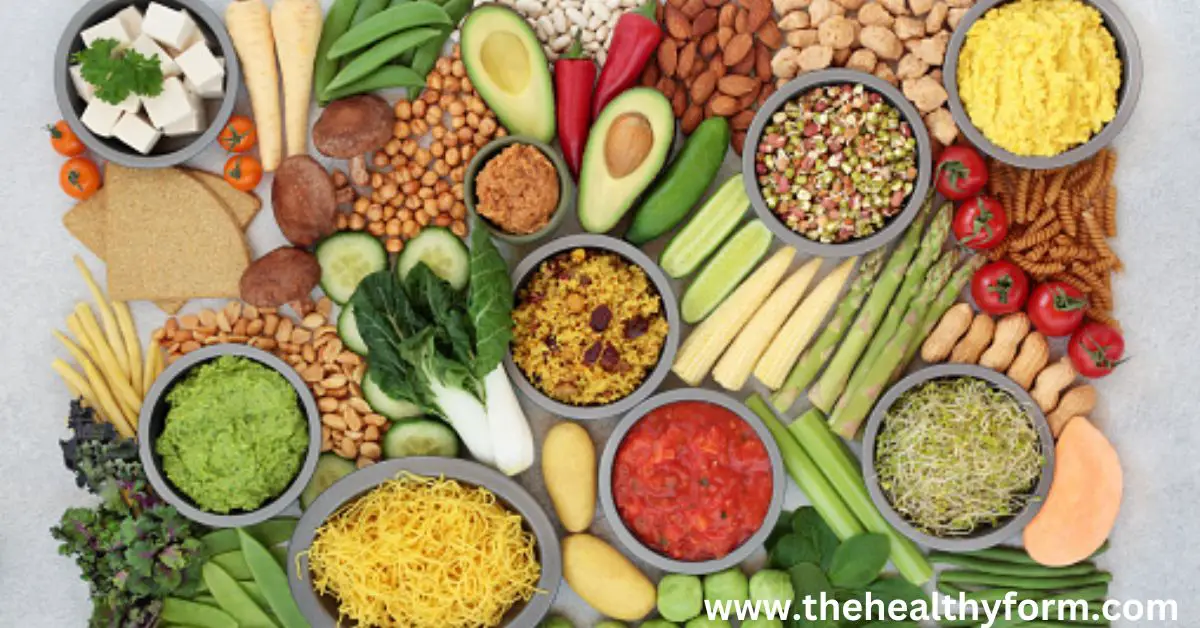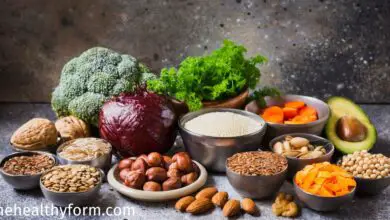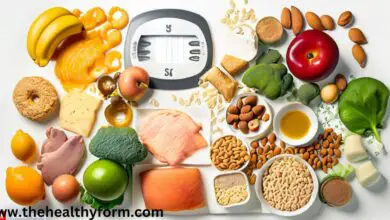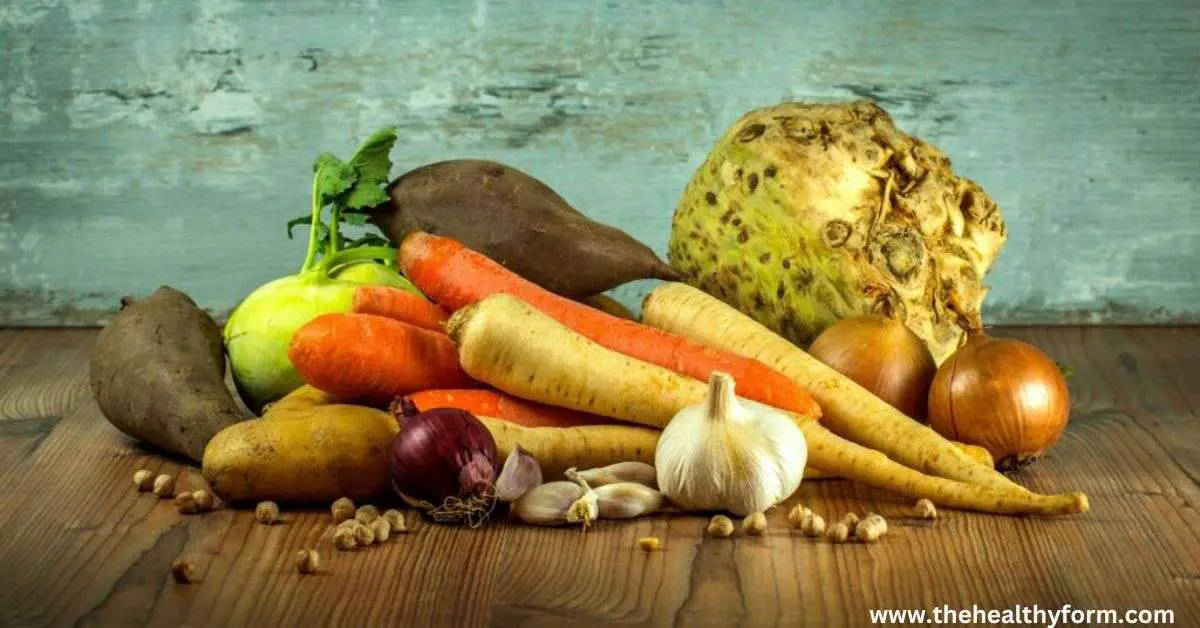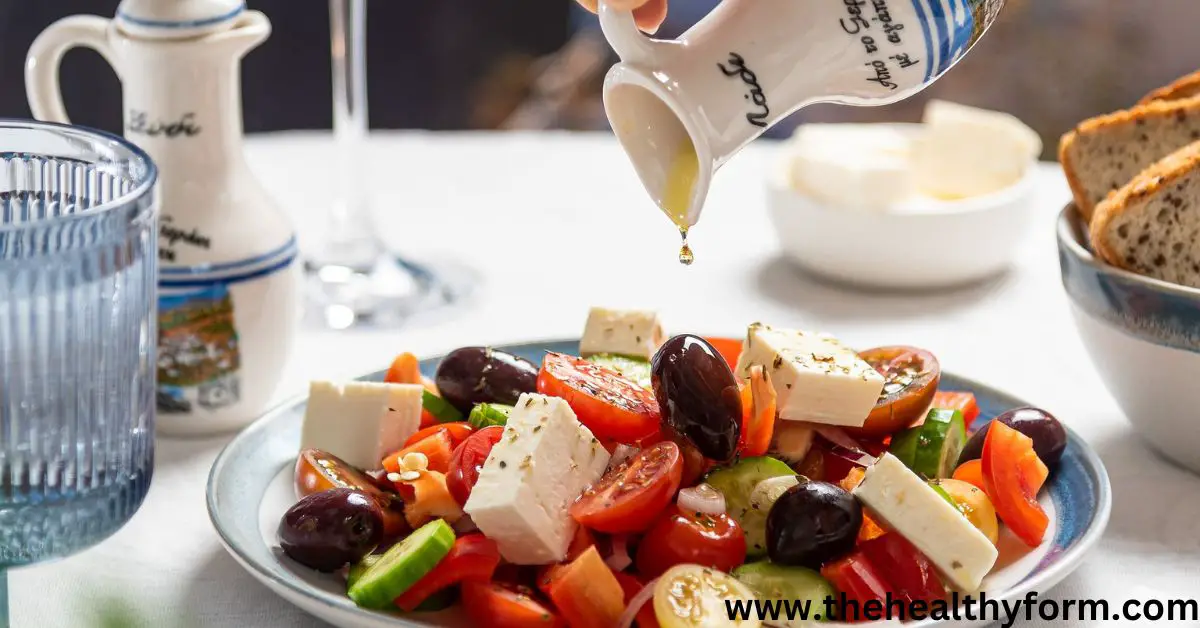How to Building Muscle and Losing Fat on a Vegan Diet
Discover the effective strategies for building muscle and losing fat on a vegan diet. Expert tips, nutrition insights, and workout guidance to help you achieve your fitness goals while embracing a plant-based lifestyle.
In a world increasingly inclined towards health and well-being, the allure of the vegan diet has captivated many. The notion of sculpting muscle and shedding fat on a vegan diet might seem uncharted territory, but fear not. In this article, we’ll navigate building muscle and losing fat while embracing a plant-based lifestyle. It’s about aligning your diet and exercise regimen to witness remarkable transformations.
Understanding the Vegan Diet for Fitness Goals
Decoding the Vegan Diet
A vegan diet is about embracing the goodness of plant-based foods while consciously avoiding animal products. The canvas is painted with various vegetables, fruits, grains, legumes, nuts, and seeds. But how does this relate to your fitness journey?
The Misconception of Limited Protein
One common misconception is that protein is scarce in the vegan realm. However, plant-based sources can deliver an impressive protein punch. Think of legumes like beans, lentils, and chickpeas. The versatile tofu and tempeh also step up to the plate. Protein is the sculptor of muscles, aiding in repair and growth.
Unleashing the Power of Plant Proteins
In the symphony of fitness, protein is the lead vocalist. It’s crucial to ensure your vegan diet delivers adequate protein intake. This is where foods like seitan shine. However, plant proteins sometimes lack certain amino acids. But don’t worry – that’s where protein combining enters the stage. Mixing different plant-based protein sources helps create a complete amino acid profile, ensuring your body gets all the essential building blocks it needs.
Balancing Macros for Fitness
As you embark on your fitness journey, it’s essential to strike the right macro balance. Protein remains in the spotlight, ensuring your muscles have the necessary ammunition. Carbohydrates come next, fueling your workouts and providing energy. And let’s not forget the importance of healthy fats – vital for overall well-being.
Nutrient-Dense Foods as Allies
What you put into your body matters. Opt for nutrient-dense foods that provide vitamins, minerals, and antioxidants. These are the backbone of your energy and vitality. Think of colorful veggies, whole grains, and wholesome fruits. A well-rounded diet keeps your engine running smoothly.
The Vegan Diet and Muscle-Building
A vegan diet and muscle-building can coexist harmoniously. Remember, muscle gain is not just about protein intake; it’s also about your overall caloric surplus. Ensure you’re consuming more calories than you burn. Consider working with a nutritionist to tailor your diet to your fitness goals.
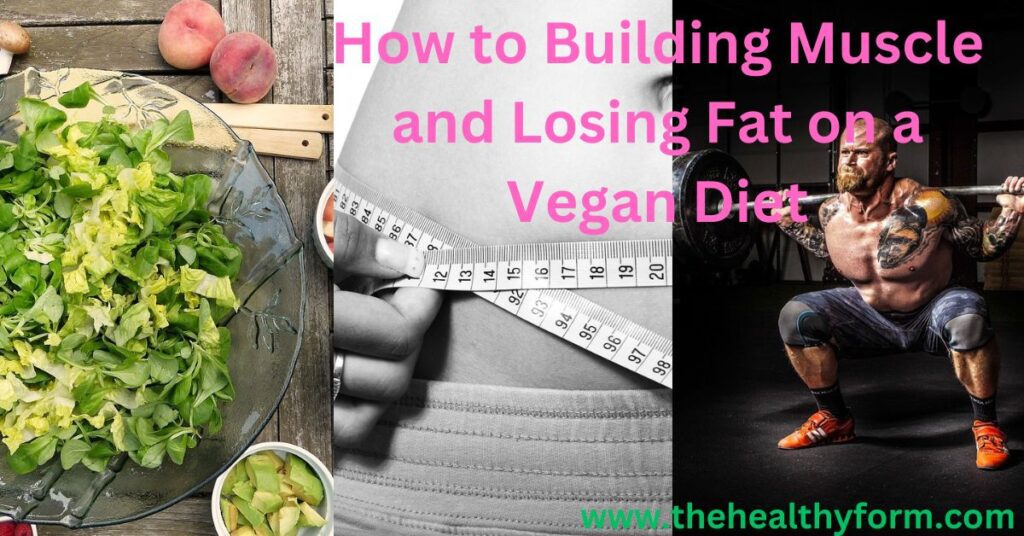
The Power of Plant-Based Proteins
Diverse Sources of Plant-Based Proteins
A world of protein-rich options is waiting to be explored in the plant kingdom. Plant-based proteins offer many choices from the robust embrace of legumes such as lentils, chickpeas, and black beans to the versatile chameleon-like quality of tofu that absorbs flavors with grace. Delve into the nutty essence of quinoa or embrace the hearty satisfaction of tempeh and seitan. Each source is a treasure trove of essential amino acids, the building blocks of muscle.
The Role of Protein in Muscle Growth
Protein isn’t a bystander; it’s the conductor of the symphony of muscle growth. When you engage in strength training, you initiate tiny disruptions in your muscle fibers. Protein swoops in like a diligent repair crew, stitching those fibers back together, but stronger and more substantial. This is the essence of muscle growth, and plant-based proteins are your tools for this transformation.
Complete and Incomplete Proteins: The Amalgamation Approach
An amino acid is the elemental unit of protein. Some plant-based sources might have an incomplete profile of these amino acids but fret not. The solution lies in the art of amalgamation. Combining different sources of plant-based proteins can create a complete amino acid profile, nurturing your muscles with all the essential nutrients they crave.
Plant-Based Protein and Weight Management
Plant-based proteins are more than muscle builders; they’re allies in weight management. These proteins possess an inherent satiety factor, leaving you fuller for longer. This means you’re less likely to engage in overeating, which is a cornerstone of effective fat loss.
Plant-Based Protein-Rich Recipes: The Culinary Odyssey
The realm of plant-based proteins extends to your kitchen, inviting you to embark on a culinary odyssey. Picture a colorful salad with chickpeas or a hearty lentil stew that warms your soul. How about a tofu stir-fry that dances with flavors? These recipes aren’t just nourishing; they’re celebrations of plant-based vitality.
Incorporating Plant-Based Proteins in Your Diet
The art of infusing your diet with plant-based proteins is about conscious choices. Craft a plate with colorful vegetables and a generous serving of legumes. Introduce tofu or tempeh to your stir-fries and curries. Dabble in the world of plant-based protein powders for post-workout shakes.
Embrace the Power of Plant-Based Proteins
Plant-based proteins are your allies in your quest for fitness and vitality on a vegan journey. They’re not just sustenance but the keys to unlocking a stronger, healthier you. As you stand before the kaleidoscope of options, remember that these proteins are the heartbeat of your transformation. With each bite, you nourish your muscles, embarking on a path of growth and well-being.
Strategies for Muscle Building on a Vegan Diet
Understanding the Muscle-Building Mechanism
First, let’s grasp the essence. Muscle building requires a caloric surplus – an environment where you consume more calories than you’re expending. This surplus provides your body’s energy to repair and grow muscles after workouts. In essence, you’re feeding your muscles for growth.
The Crucial Macro Ratios: Protein, Carbs, and Fats
Your macros are at the heart of muscle building: protein, carbs, and fats. Protein is your muscle’s best friend. It’s the material for muscle repair and growth. As a vegan, your sources are plant-based proteins like beans, lentils, tofu, and tempeh. Aim for around 1.2 to 2.0 grams of protein per kilogram of body weight.
Next up, carbohydrates. These are your energy vaults. Complex carbs from whole grains, fruits, and vegetables fuel your workouts and daily activities. Carbs also stimulate insulin release, which helps deliver nutrients to your muscles.
Then there are healthy fats. These are not to be shunned. Incorporate sources like avocados, nuts, and seeds. They support hormone production, including testosterone, which plays a role in muscle growth.
Fueling Your Muscles with Nutrient-Dense Foods
For optimal muscle building, opt for nutrient-dense foods. Leafy greens, rich in vitamins and minerals, support muscle function. Berries, packed with antioxidants, aid in post-workout recovery. Quinoa, a complete protein, provides amino acids vital for muscle growth. Incorporating these foods helps fortify your body for the journey ahead.
The Art of Meal Timing
Strategize meal timing for optimum muscle growth. Pre-workout meals rich in carbs provide the energy you need. Post-workout meals are the time for a protein-carb combo to replenish glycogen stores and kickstart muscle repair.
Progressive Overload: Lifting Heavier Weights Over Time
Your muscles thrive on challenges. The principle of progressive overload means gradually increasing the weight you lift. This stimulates muscle growth as your body adapts to new demands. So, embrace the challenge and level up your weights progressively.
Rest and Recovery: The Unsung Heroes
Amidst the hustle, don’t undermine the role of rest. Muscles don’t grow during workouts; they grow during rest. Sleep is your rejuvenation chamber. Aim for 7-9 hours of quality sleep to allow muscles to repair and grow.
Hydration: Nourishing Your Muscles from Within
Hydration isn’t just about quenching thirst. It ensures proper muscle function and nutrient delivery. Keep sipping water throughout the day, especially around workouts.
Consistency and Patience: The Golden Virtues
Above all, consistency and patience reign supreme. Muscle building is a journey, not an overnight feat. Celebrate small victories and stay committed. Rome wasn’t built in a day, and neither are sculpted muscles.
Effective Fat Loss on a Vegan Diet
Caloric Deficit: The Fundamental Key
Let’s dive right in by addressing the cornerstone of fat loss: the caloric deficit. This concept involves consuming fewer calories than your body expends. In simple terms, the energy going out should exceed the energy coming in. This deficit forces your body to tap into its fat stores for fuel, leading to gradual and sustainable fat loss.
Fiber-Rich Foods: Your Satiety Saviors
One of the secret weapons of fat loss on a vegan diet is incorporating fiber-rich foods. These gems keep you full and satisfied longer, curbing those persistent hunger pangs. Think of whole grains, legumes, vegetables, and fruits. They not only provide volume to your meals but also offer essential nutrients.
Mindful Eating: Navigating Portion Control
Effective fat loss on a vegan diet hinges on mindful eating. Be attentive to portion sizes and listen to your body’s hunger cues. Please slow down, savor each bite, and give your body the time to signal fullness. This practice not only prevents overeating but fosters a healthier relationship with food.
Nutrient-Dense Choices: Balancing Flavor and Nutrition
In your pursuit of fat loss, prioritize nutrient-dense choices. Opt for foods that pack a nutritional punch without sky-high calorie counts. Consider nutrient-dense options like leafy greens, cruciferous vegetables, berries, and nuts. These foods provide essential vitamins and minerals and keep you satisfied.
Exploring Low-Calorie Vegan Options
The vegan world is brimming with low-calorie options perfect for those aiming to lose fat. Load up on foods with high water content and fewer calories. Cucumbers, zucchini, watermelon, and berries are some examples. These foods can bulk up your meals without bulking up your calorie intake.
Hydration: Your Unsung Hero
Hydration might not seem directly connected to fat loss, but it’s a potent ally in your journey. Drinking adequate water can boost your metabolism, curb false hunger cues, and aid in digestion. Aim for at least eight glasses of water daily to keep your body functioning optimally.
Balancing Macros: Carbs, Protein, and Healthy Fats
While cutting calories is essential, maintaining a balanced ratio of macronutrients is equally important. Carbohydrates, protein, and healthy fats uniquely affect your fat-loss journey. Carbs provide energy for workouts, protein supports muscle preservation, and healthy fats aid nutrient absorption and satiety.
Mindful Snacking: Navigating Cravings
Cravings can be a stumbling block in the path of fat loss. Instead of resisting them outright, opt for mindful snacking. Choose satisfying, nutrient-dense snacks like raw nuts, hummus with veggies, or a piece of fruit. This approach satisfies your cravings while aligning with your fat loss goals.
Consistency and Patience: The Winning Attitude
Remember, fat loss is a journey that requires consistency and patience. Sustainable results take time to manifest. Celebrate small victories, stay committed to your goals, and approach each day positively. You’re not just losing fat; you’re gaining a healthier, more vibrant version of yourself.
Balancing Nutrient Intake
The Foundations of Nutrient Balance
Nutrient balance isn’t a complex puzzle. It’s about consuming various foods to obtain the full spectrum of vitamins, minerals, and nutrients your body craves. The vegan path is rich with possibilities, but vigilance is key. Diverse foods translate to a diverse nutrient intake essential for vibrant well-being.
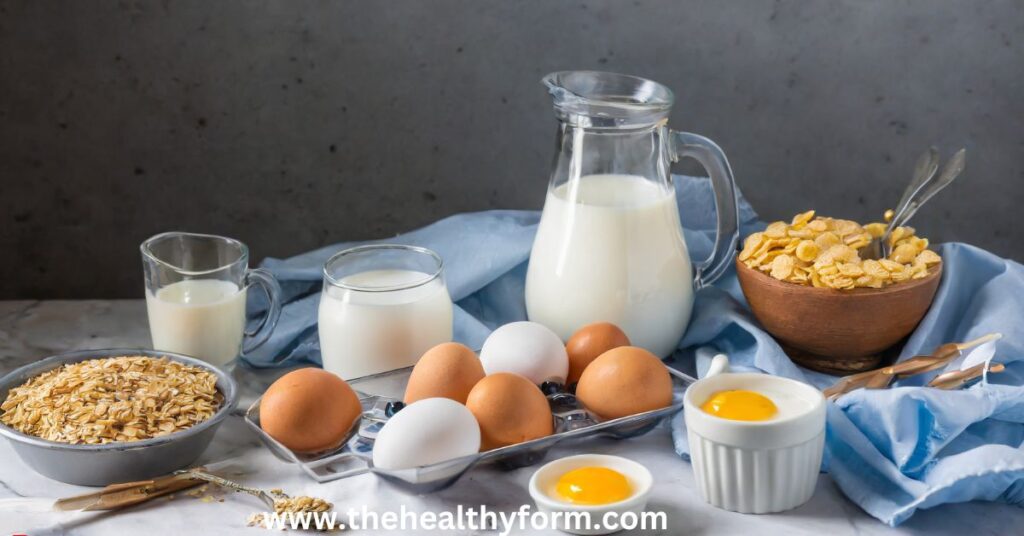
Essential Nutrients for Vegans
Like any other dietary group, Vegans have their nutritional focal points. Vitamin B12, often found in animal products, requires attention. This vitamin is vital for nerve function and red blood cell production. Consider fortified foods or supplements to meet your B12 needs.
The iron game changes in the vegan arena. Plant-based sources provide non-heme iron, which requires a bit of strategic planning. Combining these sources with vitamin C-rich foods enhances absorption. Think beans with citrus or fortified cereals with berries.
Omega-3 Fatty Acids: The Plant-Powered Source
Omega-3 fatty acids, renowned for heart and brain health, usually hail from fish. But fear not – chia seeds, flaxseeds, and walnuts boast alpha-linolenic acid, a plant-powered omega-3. These nutritional heroes lend themselves beautifully to your vegan journey.
Protein: The Cornerstone of Strength
As we march towards balanced nutrition, protein assumes its role. Plant-based protein sources – legumes, tofu, and quinoa – hold immense power. Pair these with whole grains for complete protein profiles. This synergy ensures your body receives all essential amino acids.
Calcium: Fortifying Your Bones
Calcium, essential for bone health, doesn’t solely reside in dairy. Fortified plant-based milk, leafy greens, and tofu fortified with calcium can be your go-to sources. Ensure a strategic inclusion of these foods in your diet for optimal calcium intake.
Navigating Supplements
Supplements are allies in your vegan journey but should complement, not replace whole foods. Beyond B12, consider vitamin D supplements if sunlight exposure is limited. Omega-3 supplements sourced from algae can support your plant-based omega-3 intake.
Staying Hydrated: The Unsung Hero
Hydration, often overlooked amidst nutrient talk, is an unsung hero. Water aids digestion, supports nutrient transport, and maintains overall well-being. Make water your constant companion on your vegan path.
FAQs about Building Muscle and Losing Fat on a Vegan Diet
Can you effectively build muscle on a vegan diet?
Absolutely. With the right protein sources and balanced nutrition, muscle building is achievable on a vegan diet.
Is fat loss possible while following a vegan lifestyle?
Yes, fat loss can be achieved on a vegan diet. A caloric deficit, nutrient-dense foods, and regular exercise are key.
What are the primary plant-based protein sources for muscle building?
Plant-based protein sources include legumes, tofu, tempeh, seitan, and plant-based protein powders.
How can I ensure balanced nutrition on a vegan diet?
Focus on various whole plant foods, and consider fortified foods and supplements for essential nutrients like B12 and omega-3 fatty acids.
What role does exercise play in building muscle and losing fat on a vegan diet?
Strength training helps build muscle, while a combination of strength training and cardiovascular exercises aids in fat loss.
Conclusion
In conclusion, the myth that veganism can’t coexist with muscle building and fat loss is debunked. Your goals are achievable and within reach with a strategic diet and purposeful workout regimen. So, embark on this journey of transformation with boldness and perseverance. The marriage of a vegan lifestyle and fitness aspirations is not just feasible but transformative. It’s time to rewrite your narrative, sculpt your physique, and embrace a healthier you.

